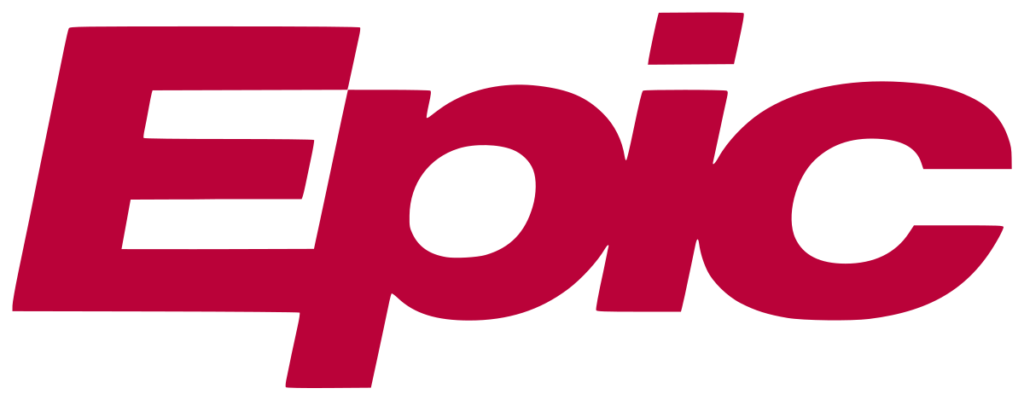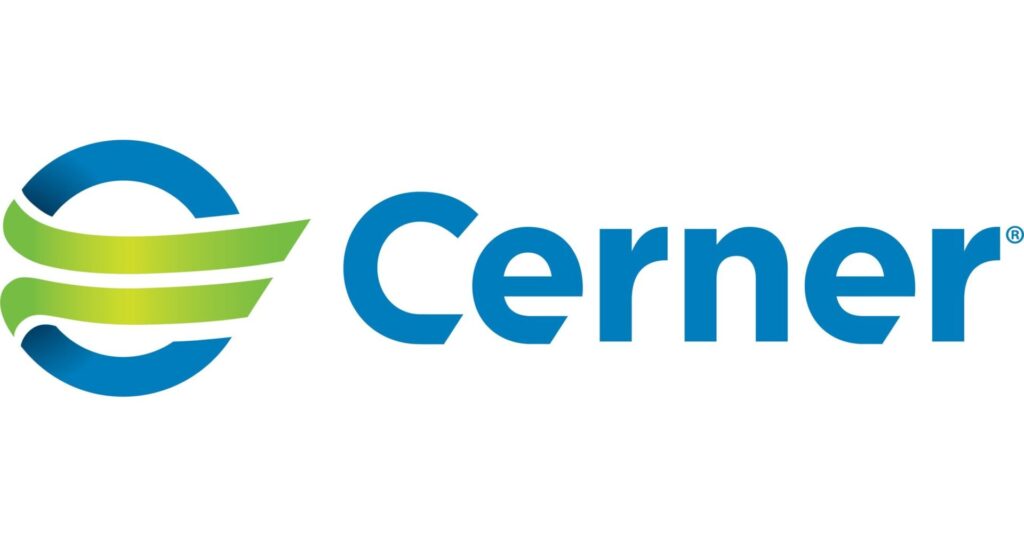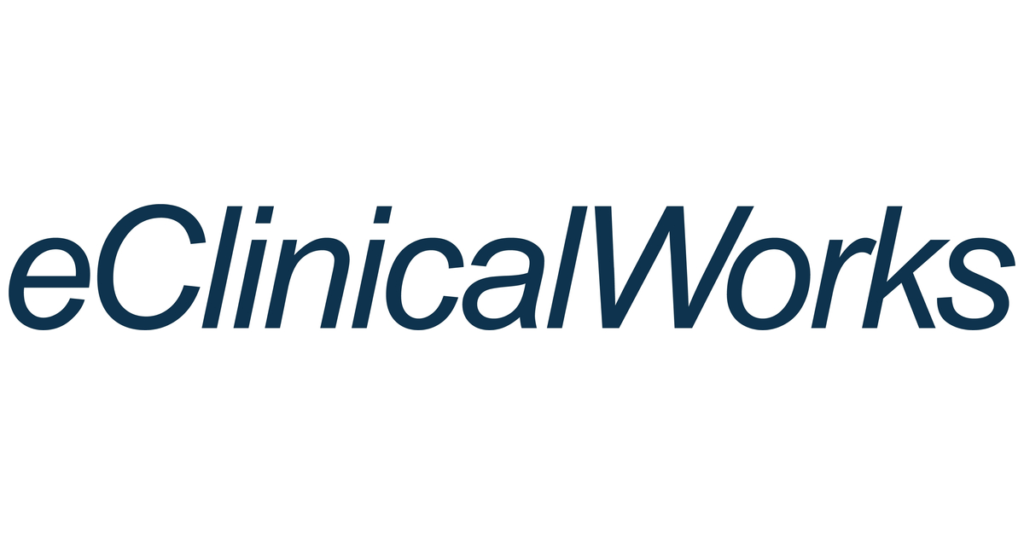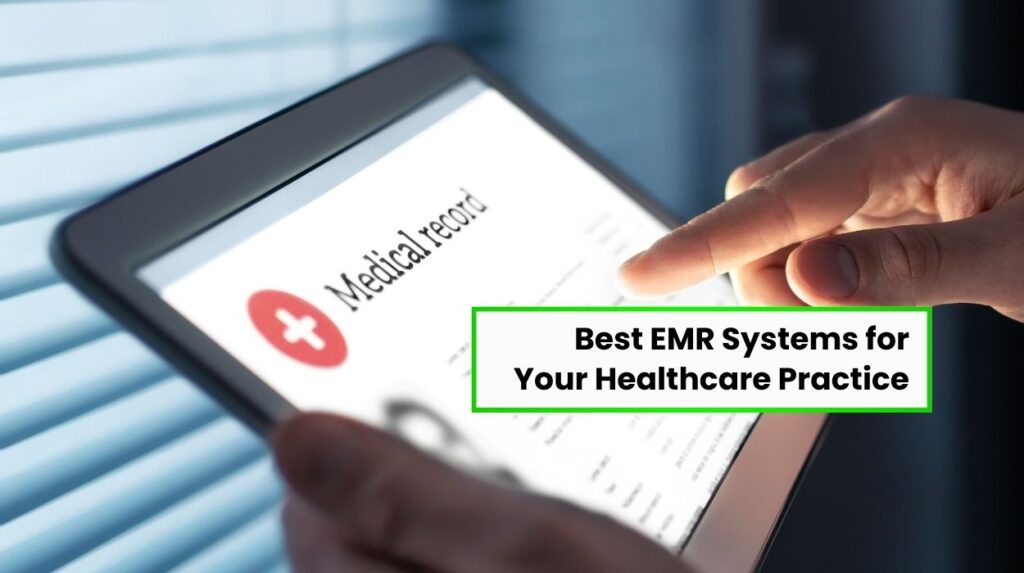Electronic Medical Record systems are computerized tools that help physicians and other nursing staff keep patients’ information. The tools make work easier and faster for the workers in health care. A doctor would not refer to the paper file but store and find a patient’s details through the computer or tablet.
Below is a guide to the best EMR systems for types of healthcare places. We will discuss systems suitable for large hospitals, small physician offices, and everything in between. A properly suited EMR system will allow healthcare teams to do an even better job of caring for their patients, and to perform their jobs more efficiently.
Let’s dive right into the top EMR options for different healthcare settings:
What are EMR Systems?
Doctors and hospitals use computer programs called EMR systems to store patient information. They do not use paper folders anymore as they store all the information on computers. Such systems contain crucial information about patients, including:
- Their health history
- What illnesses they have had
- What medicines do they take
- Plans for treatment of their health problems
EMR stands for “Electronic Medical Record.” These computerized systems make the doctors’ and nurses’ work so easy that they can quickly access their patients’ information, have some fast notes regarding the patients, view test results, prescribe medicines, and also share the information with other health workers.
The first advantage associated with using EMRs is that they help minimize errors that are likely to occur using paper records. For example, if a doctor types something on the computer, it cannot be misinterpreted compared to physicians’ handwriting. EMRs also facilitate maintaining the safety and privacy of patients’ information.
Another advantage is that EMRs can generate reminders. They may remind a doctor that a patient needs a follow-up examination or a vaccination. This aids in delivering quality care to the patient.
They may also be used to identify trends and patterns in health data, such as aiding research or improving the quality of healthcare.
Generally, all the EMR systems help healthcare providers improve their efficiency and become more attentive toward patients.
Best EMR Systems for Hospitals
Large hospitals need powerful EMR systems. Here are some top choices:
1. Epic Systems

There are many hospital EMRs and Epic ranks among the best. It’s rather like the big toolbox of healthcare with all that a hospital would wish and desire. It’s good at managing records, scheduling, and medical billing.
It’s quite a comprehensive system but quite hard to learn. Most of the functionalities are accompanied by large hospitals customizing their Epic because it is capable enough to handle many more patients and departments simultaneously.
It also enables doctors to retrieve patient information from anywhere, right down to the smallest node of a given huge healthcare network.
2. Cerner

Some other top picks for the best EMR systems suitable for large hospitals include Cerner. It serves as the large brain of the hospital, containing all information related to patient care and business operations.
Basically, Cerner serves to help doctors make better decisions regarding the care of their patients. Not only that, but it helps hospitals make more money decisions. Similar to Epic, Cerner can be used across most hospital departments. It’s known for its dependability and for its capacity to meet the needs of even the largest healthcare systems.
3. Allscripts

As said before, Allscripts would be one of the better EMR systems to work for big and smaller hospitals equally. It’s like a flexible friend: one size fits all the hospital sizes. Allscripts is equipped with the right tools for the maintenance of records about the patients, prescriptions, and billing.
Most physicians would confirm that Allscripts is much easier compared to some of the huge systems that exist. In addition, Allscripts plays well with other healthcare tools, so it integrates easily into a hospital’s existing system.
Best EMR Systems for Small Practices
Smaller healthcare practices have different needs. Here are some great options:
4. Athenahealth

Athenahealth holds a spot in many a rating as among the best EMR software for small practices. It’s almost like a smart assistant for your practice. The system is user-friendly and web-based; therefore, it doesn’t require any special computers. Athenahealth assists with patient records, scheduling, and billing. The customer service is superb, with many updates being added regularly. Many small practices like it because it’s not too complicated but still does a lot.
5. eClinicalWorks

With regard to the best EMR systems for small practices, eClinicalWorks belongs to the top list. The product is a bit of a Swiss Army knife in the healthcare area, with a little bit of everything. This system assists with patient records, scheduling, and even telemedicine. The cost is reasonable, so smaller practices will quite afford it. eClinicalWorks also has great custom template creation that makes one fit into specific practice needs.
6. Kareo

Kareo is specially designed for independent practices, making it one of the best EMR software for small practices. It’s like a friendly guide that understands small practice needs. Kareo is very easy to use and doesn’t require much training. It assists with patient records, billing, and even marketing your practice. Many doctors like Kareo because of its affordability and no long contracts.
Key Features of the Best EMR Systems
When choosing an EMR system, look for these important features:
1. Easy to use
An intuitive interface and user-friendly design will be critical to workflow efficiency and for rapid adoption by your staff. This would entail a clear layout of the system and logical navigation, without complex data entries. The software should put very little training burden on healthcare providers who should be engaging patients, rather than wrestling with cumbersome software.
2. Customizable
All medical practices are different in their needs and workflows. A good EMR system offers the flexibility to configure templates, forms, and workflows based on specific specialty and practice preferences. Such customization will pave the way for the systems to run in line with the existing processes, improving the efficiency and satisfaction of users across different departments or specialties.
3. Integrates With Other Systems
This makes interoperability critically important in current healthcare. The EMR needs to interact fully with other healthcare IT systems like the laboratory information system, pharmacy management software, and medical imaging systems. Smooth data exchange, non-redundant data entry, and the ability to get a complete view of patient information are ensured across all these platforms through the integration.
4. Mobile Access
There is also a need to access information about patients from their mobile devices. Thus, good EMR software will provide secure applications to doctors through their mobile devices, or responsive web interfaces, to view and update patient referrals, and medical histories, make e-prescriptions, view lab results, and other crucial information—enhancing flexibility in serving patients.
5. Tight security
All the more concern should be placed on making stringent security measures because sensitive data are involved. In this case, the EMR system must employ strong encryption, multifactor authentication, and fine-grained audit trails. It should not compromise healthcare privacy regulations, for instance, HIPAA, by allowing unauthorized access, leaked information, and cyber vulnerabilities.
Choosing the Right EMR System
To pick the best EMR system for you:
1. Consider your practice size and needs
First, consider the size and needs of your medical practice. These would most likely be different features for a small clinic than for a large hospital. Assess your patient volume, specialties, and workflows. Ensure the EMR system you choose supports your current patient load and can adapt to future growth. Consider the integration of existing systems and any specific reporting needs.
2. Think about your budget
The costs for EMR vary greatly. Add the one-time implementation costs to the ongoing subscription fees and hardware refreshes—only as needed. Tally up the lost productivity during transition and staff education. While cost is an issue, value trumps cost. That is, a more expensive system could be more beneficial in long-term benefits and efficiency.
3. Ease of Use: The user-friendliness of the system
User-friendliness ensures staff adoption and efficiency. That is, the user-friendly interface reduces training time and decreases errors. Look for customizable templates and workflows that fit your practice needs. Consider a learning curve for different roles of the staff. The more intuitive and easier the system is—the higher the job satisfaction and the better will be the care for the patients.
4. Observe whether it provides good training and support:
Adequate support from the vendor is crucial for the smooth running of EMR implementation and subsequent use. Extensive initial training programs and always-available technical support, online resources, and user forums should be available, with regular updates to the system. Good support makes a big difference between frustration and success in the adoption of an EMR.
5. Whether it will grow with your practice
Choose an EMR that will grow with your practice in the future. Look for modular systems that enable feature addition with growth. See if it would accommodate new specialties, locations, or growing patient volumes. Ensure it integrates with emerging technologies and adapts to changing healthcare regulations.
Conclusion
Selection of an appropriate EMR system for any sized healthcare practice is a major responsibility that potentially determines its success. The right system for this selection requirement will highly improve the quality of patient care and greatly streamline your operation.
For hospitals, it would be implemented with full-bodied, powerful, and strong functionality for both complex workflows and large volumes of patients. Smaller practices will most benefit from streamlined, cost-effective solutions that suit its said needs.
Take time to evaluate various options considering factors such as usability, customization, integration capabilities, and cost. Ideally, the perfect EMR should reduce the paperwork and administrative burdens on providers of care, allowing them to spend more of their quality time with patients.
It will be an investment in your practice’s efficiency and your patients’ welfare, so be wise in making this choice to assure long-term satisfaction and improved delivery of healthcare.
FAQs:
1. How is an EMR different from an EHR system?
EMR, or Electronic Medical Record, typically maintains the medical and treatment history of a patient within one practice. EHR stands for Electronic Health Record, with information about the patient shared beyond just a single practice, aiming for an absolute history of a patient’s encounters.
2. What is the typical timeframe to implement an EMR system?
The implementation time will vary depending on the size of the practice and the complexity involved in the system. This can vary from weeks in the case of small practices to a couple of months in the case of large hospitals.
3. Are cloud-based EMR systems secure?
Reputable cloud-based EMR systems do provide advanced security features of high levels, including encryption and regular backups. It, therefore, is very vital that a system is HIPAA-compliant and adheres to the industry’s finest practices in safeguarding data protection.
4. Will the EMR systems integrate with my existing practice management software?
This is quite possible in most modern EMR systems; they are initially engineered to interface with any available practice management software. All the same, you want to be sure it’s compatible with your existing systems before you make a decision.
5. How much training will staff need to master a new EMR system?
These will vary by system and even by user proficiency. Most vendors provide both an initial training session and follow-up with various support and resources. Plan on several hours to a few days of training per staff, depending on how fast the users can pick up the system.

